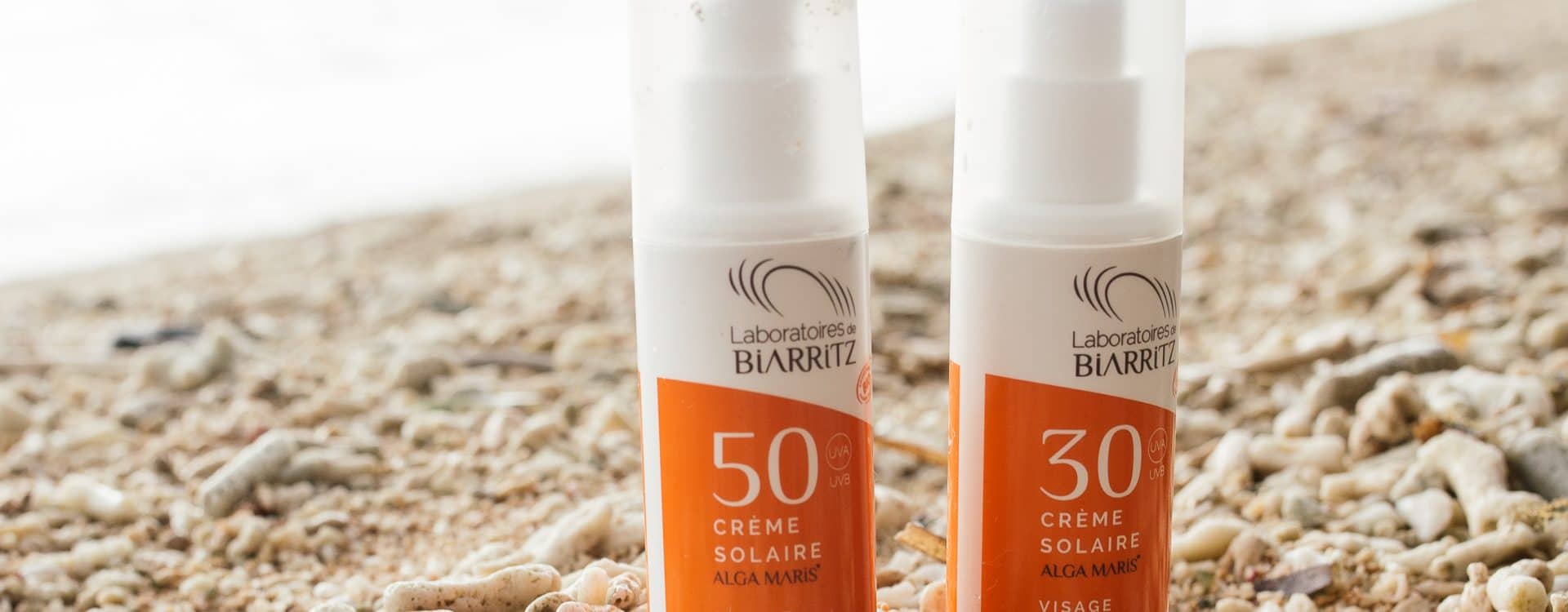Going on a trip this summer? If you are going to be in the tropics, a high SPF sunscreen is essential. At lower latitudes, the UV radiation is much more intense. It comes at a more «direct» angle and goes through less atmosphere and is less attenuated.
Choose wisely depending on the destination!
But pay attention to where you are going: in some places sunscreen is prohibited! Do not worry, only sunscreens that use synthetic UV filters are concerned by the ban (and not Laboratoires de Biarritz products). Every year, around 4 and 6 thousand tons of sunscreen are diluted into the oceans by swimmers, surfers and divers. Not by any means a small amount!
What is of concern is oxybenzone: a synthetic UV filter present in over 3500 sunscreens and other types of cosmetics. It has negative effects on coral at concentrations as low as 62 parts per billion – the equivalent to one drop in six and a half Olympic swimming pools. It can cause mutations in coral DNA, bleaching and completely de-regulate the growth of their skeleton. Combined with other factors, it can lower the resilience of coral reefs to stress it encounters.
Because of these problems, some natural marine parks in Mexico, notably Xel Ha in Tulum, have banned all non biodegradable sunscreens (read non certified organic). The Hawaii state government even considered prohibiting the sale of all sunscreens containing oxybenzone to preserve their coral reefs. The good news is that sunscreens with mineral UV filters can be used anywhere: you can bring ALGA MARIS ® sunscreens around the world! (And if you do, share it with us!)
When going diving, most experts recommend using mineral-based sunscreens. To ensure the protection of these delicate ecosystems, use sticks and other very water resistant products to protect yourself in the boat. Put them on before going aboard to ensure the most effective protection. Finally, protective clothing (wetsuits and lycras!) are great for sun protection, so no need to apply under them.
